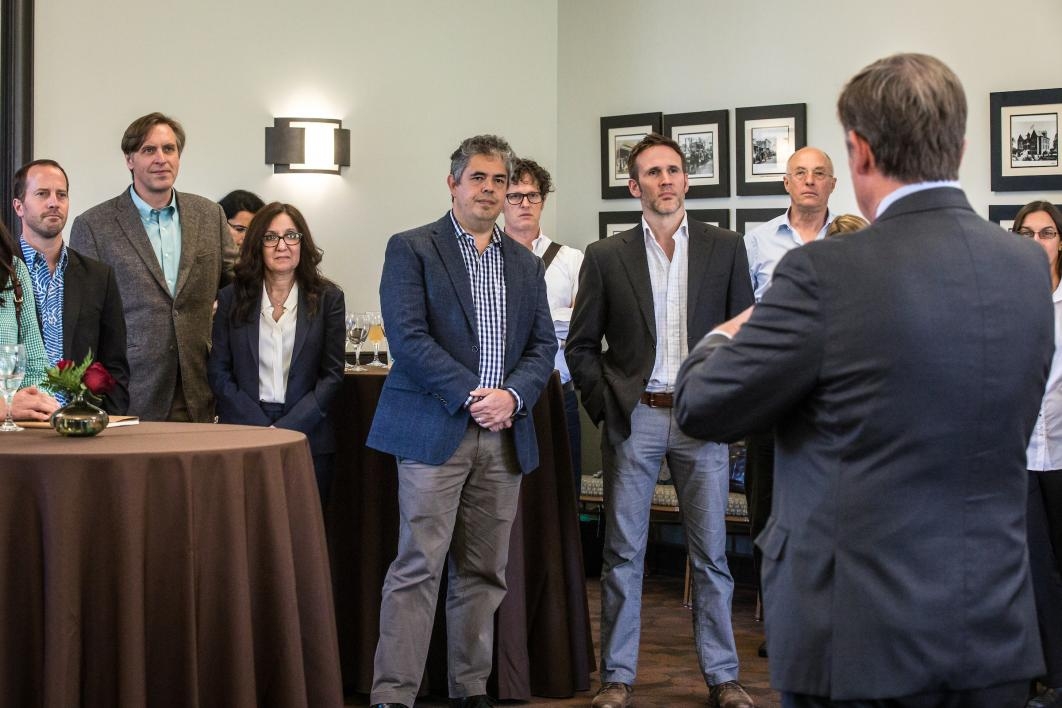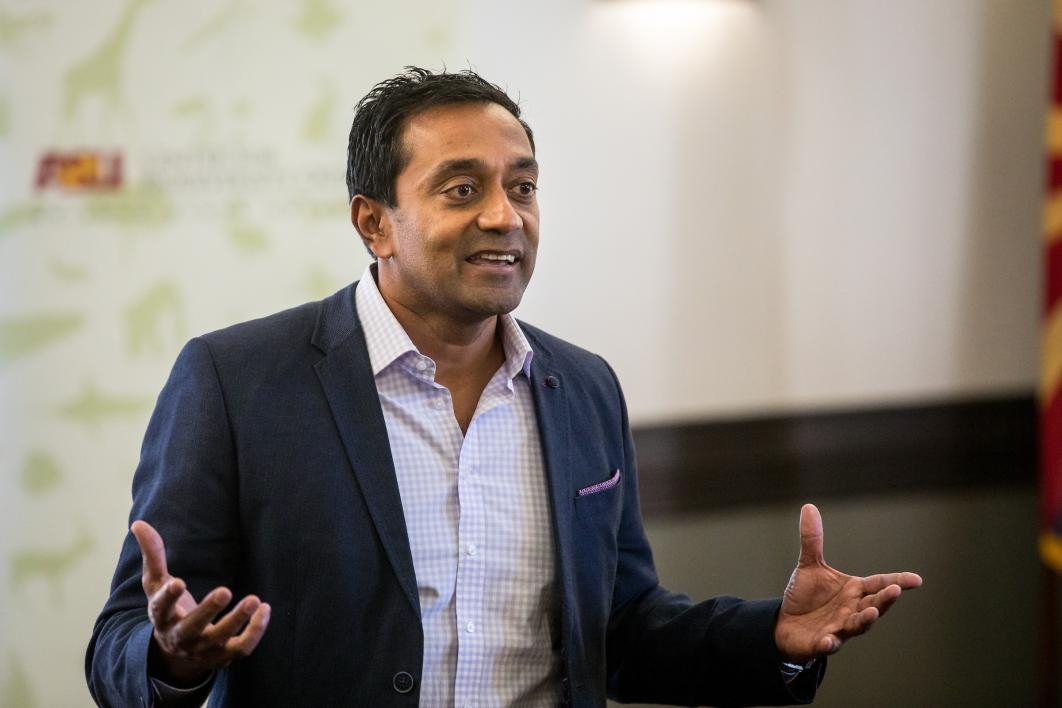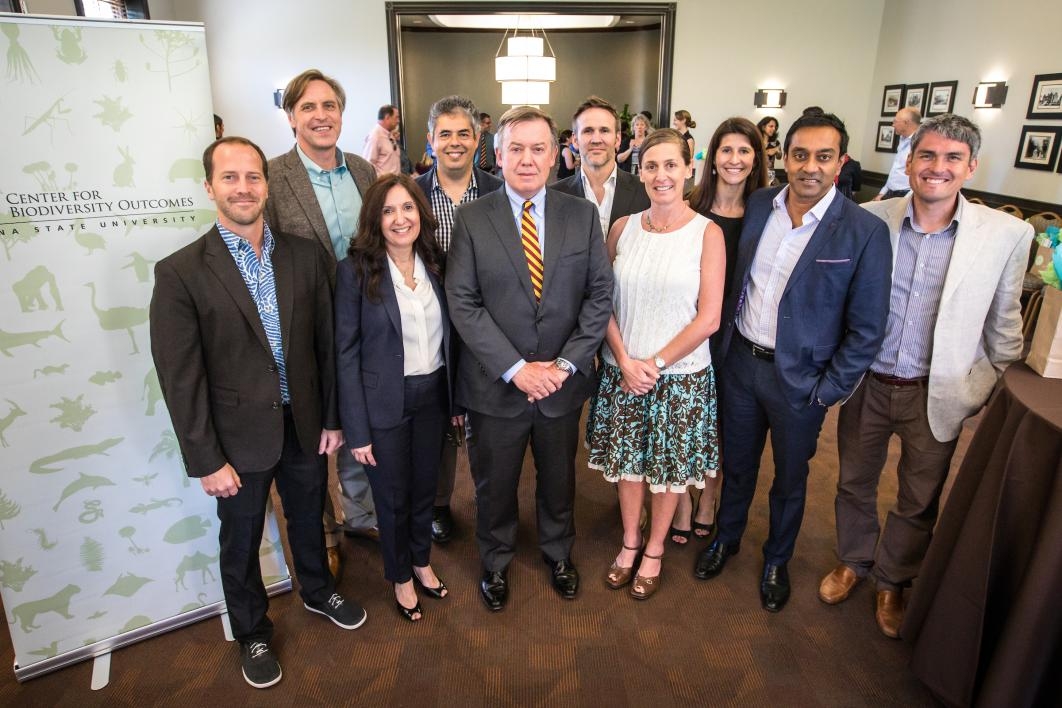Environmental news can be all too depressing, with headlines punctuated by the drumbeat of extinction and destruction.
There are occasional bright spots. One of them occurred this month when Arizona State University announced it is powering up its conservation biology program by adding seven professors of practice to the faculty as part of a partnership between the university’s Center for Biodiversity Outcomes and Conservation International, the biggest American conservation organization.
The ASU center takes a multidisciplinary approach to find solutions for the long term — not just the science of saving species that one might think of with the field, but also engaging with business and reaching out to groups underrepresented in conservation biology.
It’s a practical approach that fits well with that of Conservation International. The nonprofit has helped establish 1,200 protected areas across 78 countries and protected more than 730 million hectares of land, marine and coastal areas.
The partnership’s goals are threefold:
- protect biodiversity
- promote sustainable development, particularly in food production and fisheries
- train the next generation of conservation biologists
Biodiversity is “the natural capital that we need for human well-being,” said Leah Gerber, director of the Center for Biodiversity Outcomes, itself a partnership between ASU’s Julie Ann Wrigley Global Institute of Sustainability and the School of Life Sciences.
“Our partnership with Conservation International is a mechanism to integrate scholarship across campus in interdisciplinary teams to tackle (those) three general goals,” Gerber said.
ASU President Michael Crow addressed the seven new professors of practice who will be teaching, lecturing, mentoring and leading fieldwork in Arizona; Washington, D.C.; and around the world.
This will not be a sequestration of academia away from the front lines, Crow told them. They will rush towards the battle, not away from it.
“Right now we’re in a race, a race that will not be easily won,” Crow said. “The forces of nature and the negative force of our impact on nature are accelerating. The acceleration of those forces are such that they will contribute to our need to have something we don’t have, which are better theories, better ideas, better tools, better solutions, better implementation, better translation — none of which comes naturally. ...
“We don’t have preconceived notions of what it all means or how it all works out — we just hope we can work it out. It’s meant to be catalytically disruptive to how we think and how we work and what we’re doing.”
The exact nature of how the partnership will shake out will be determined later. The immediate goal is to leverage the size and resources of the university with the expertise of the nonprofit to scale up the war to save the natural world.
“What I’m looking for a 10-times impact, a 100-times impact in the work that we do,” said M. Sanjayan, executive vice president and senior scientist at Conservation International. “The only model I have for making that happen is through science. ...
“You will hold us to the truth. You will be honest with us. We can try things. We can experiment, free from preconceived notions and find ways to take the work we do in real places and create that massive impact. ... This is the beginning.”
Daniella Raik, senior vice president and managing director of the Betty and Gordon Moore Center for Science at Conservation International, said early talks revealed both sides agreed the main goals would be tackling biodiversity loss and ecosystem degradation.
“When we met, we talked about it in various different ways and settled on three main goals we think we can achieve together, given ASU’s incredible academic capacity and our work to do conservation on the ground,” Raik said. “We talk a lot of research to policy or research to action, but it’s this kind of partnership that’s making it happen.”
It’s a practical partnership that will yield measurable results, Gerber said. One of the most important goals is building the next generation of conservation biologists. It’s important to show students they can have a rewarding, successful career in the field.
“Many of these students want to be practitioners working out in the real world and working on the ground to solve problems,” she said. “They’re actually going to be taught by the people who are doing that.
“I anticipate not only achieving quantitative outcomes within each of those domains but also creating a model for how these types of non-governmental/academic partnerships can collaborate in a way that mobilizes our respective capacity to tackle the most pressing environmental challenges of the 21st century.”
Top photo: Courtesy of freeimages.com
More Science and technology

ASU-led space telescope is ready to fly
The Star Planet Activity Research CubeSat, or SPARCS, a small space telescope that will monitor the flares and sunspot activity of low-mass stars, has now passed its pre-shipment review by NASA.…

ASU at the heart of the state's revitalized microelectronics industry
A stronger local economy, more reliable technology, and a future where our computers and devices do the impossible: that’s the transformation ASU is driving through its microelectronics research…

Breakthrough copper alloy achieves unprecedented high-temperature performance
A team of researchers from Arizona State University, the U.S. Army Research Laboratory, Lehigh University and Louisiana State University has developed a groundbreaking high-temperature copper alloy…





